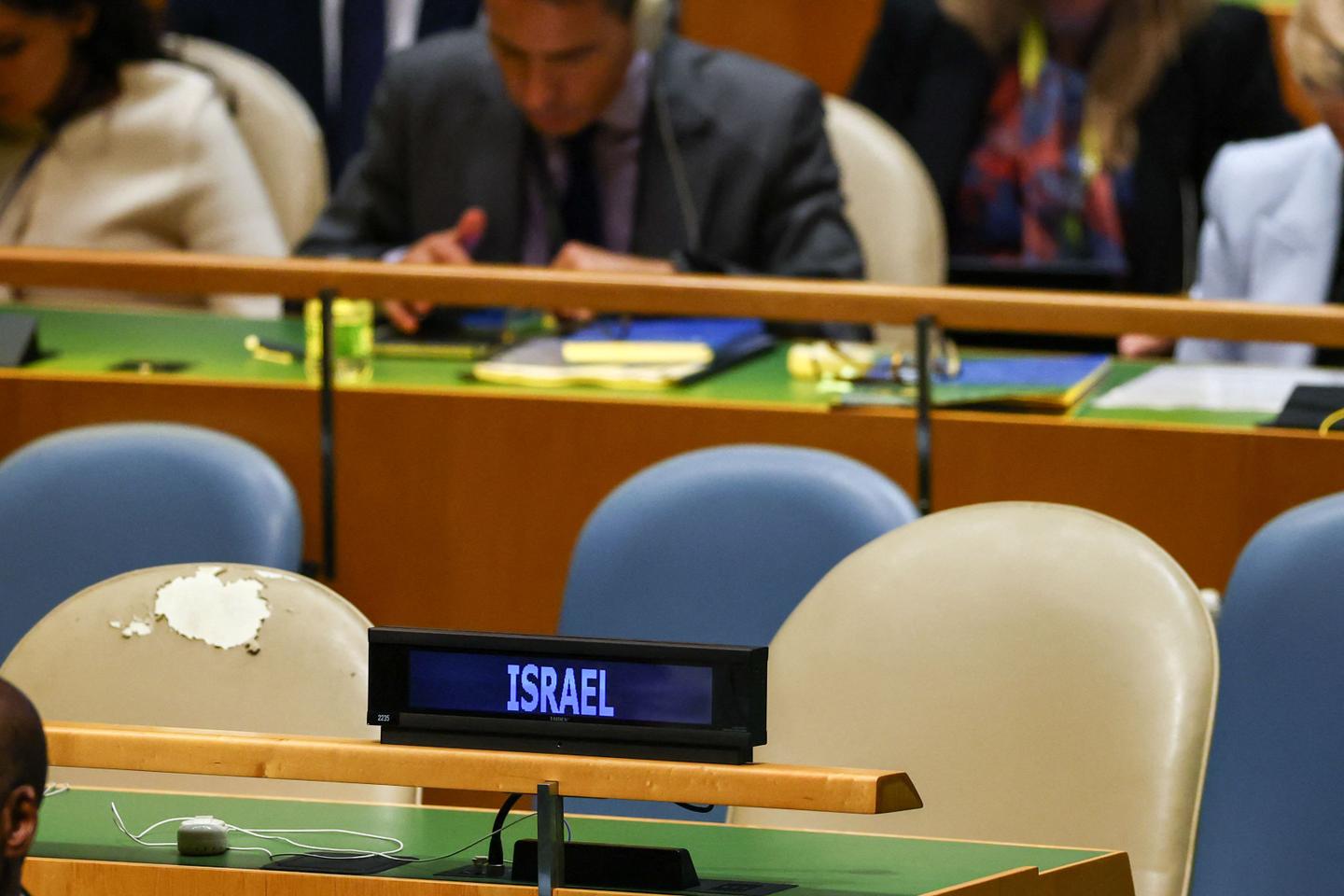


The choice to leave a seat empty rarely signals a position of strength. The absence of the Israeli delegation on September 22 at the United Nations on a day dedicated to safeguarding the two-state solution – an event chosen by President Emmanuel Macron to declare France's recognition of the State of Palestine – marked a historic level of isolation.
This isolation is the price to pay for pursuing a war in Gaza without clear objectives, as well as for ongoing territorial predation in the West Bank. It is not a fixed cost; it could fluctuate depending on the determination of those who wish to preserve a diplomatic solution now in jeopardy, a solution that has become repellent to both peoples involved – one because it rejects it, the other because it no longer believes in it. Yet it remains preferable to all its alternatives, which include the ethnic cleansing of Palestinians from Gaza or their confinement in "bantustans" in the West Bank.
Israeli Prime Minister Benjamin Netanyahu had anticipated this isolation before once again sending his troops to attack the narrow strip of land. He promised his fellow citizens an oxymoron: the destiny of "Athens," likely for its democratic virtues, which he nonetheless tramples, combined with that of a "super Sparta," certainly for its military prowess. It is mainly this vision that prevails, even if it is a Sparta without the Peloponnesian League, which is far less appealing.
Metric tons of American bombs
The autarkic ambition trumpeted on this occasion, as a way to protect against an inevitably hostile world, briefly stunned Israeli business circles before the prime minister felt obliged to clarify that this self-sufficiency would apply only to armaments. With one significant exception: the vast scope of the airbridge supplying the tons of American bombs used in Netanyahu's endless wars.
Military self-sufficiency is not a new idea. It circled around Netanyahu during his first term in office, after his victory in the 1996 elections. While a Democratic president, Bill Clinton – committed to the two-state solution and the principle of "land for peace" – was in the White House, a report from neoconservative circles advocated for such a bootstrapped autarky that would give the future nationalist prime minister greater leeway in the face of possible pressure from Washington.
You have 55.3% of this article left to read. The rest is for subscribers only.
